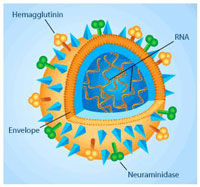Peptimmune is Granted Exclusive License from Genzyme to Develop and Commercialize Treatment for Metabolic Diseases
Advertisement
Genzyme Corporation and Peptimmune, Inc. today announced that Genzyme has granted an exclusive worldwide license to Peptimmune to develop and market a Genzyme investigational drug candidate for the treatment of obesity and other metabolic disease indications. Peptimmune plans to file an IND with the U.S. Food and Drug Administration to begin clinical trials of the drug later this year.
Under the agreement, Genzyme grants Peptimmune exclusive rights to develop, manufacture and commercialize GT389-255, in exchange for royalties, in addition to shared milestones and payments if the program is partnered further. Financial details were not disclosed.
"The acquisition of a product in the metabolic disease field that could enter the clinic in 2004 broadens and diversifies Peptimmune's pipeline," stated Tom Mathers, president of Peptimmune. "It accelerates our evolution from a research and discovery stage company, to a fully integrated biopharmaceutical company. The prospect of a new treatment for obesity offers hope for the millions of people suffering from this worldwide epidemic."
The investigational drug candidate, GT389-255, has a dual mechanism of action, serving as a pancreatic lipase inhibitor and a fat-binder. It acts within the gastro-intestinal tract to prevent fat digestion and is expected to have fewer side-effects than currently marketed therapies. GT389-255 has been evaluated in a number of preclinical studies, including investigational new drug-enabling toxicology studies.
"We have discovered a very innovative treatment for obesity that has the potential to address a very serious and growing worldwide public health problem," stated Ted Sybertz, Ph.D., senior vice president and general manager of Genzyme Drug Discovery and Development. "However, because of its broad physician call-point, obesity is not a strategic fit for Genzyme. Given Peptimmune's experienced management team, clinical development expertise in both autoimmune and metabolic disease, and their commitment to moving this program forward, we think they are an excellent partner."
The Genzyme drug discovery effort that developed the anti-obesity program has drawn upon the company's extensive expertise in developing compounds to treat metabolic disease and its world-renowned reputation in polymer chemistry. Two polymer products have been brought to market, Renagel® (sevelamer hydrochloride), a calcium-free, metal-free phosphate binder for patients with end-stage renal disease, and WelChol® (colesevelum hydrocholoride), a cholesterol-lowering agent. A third polymer, tolevamer, has recently completed Phase 2 clinical trials for the treatment of C. difficile associated diarrhea. These polymer therapies are not absorbed and all act within the GI tract.
Obesity - An Expanding Epidemic
Obesity is a global healthcare issue that is associated with an increased risk of serious metabolic diseases, including cardiovascular disease, Type 2 diabetes, hypertension, stroke, dyslipidemia, and osteoarthritis. Published prevalence rates indicate that more than 180 million people in the United States and Europe are obese, and the number of obese individuals continues to increase dramatically worldwide. A 1999 article published in the Journal of the American Medical Association estimates that there are some 300,000 deaths per year in the United States that are attributed to overweight and obesity. According to data released by the U.S. Department of Health and Human Services, the direct medical costs to the U.S. population that were attributed to obesity totaled $117 billion in 2000.




























































